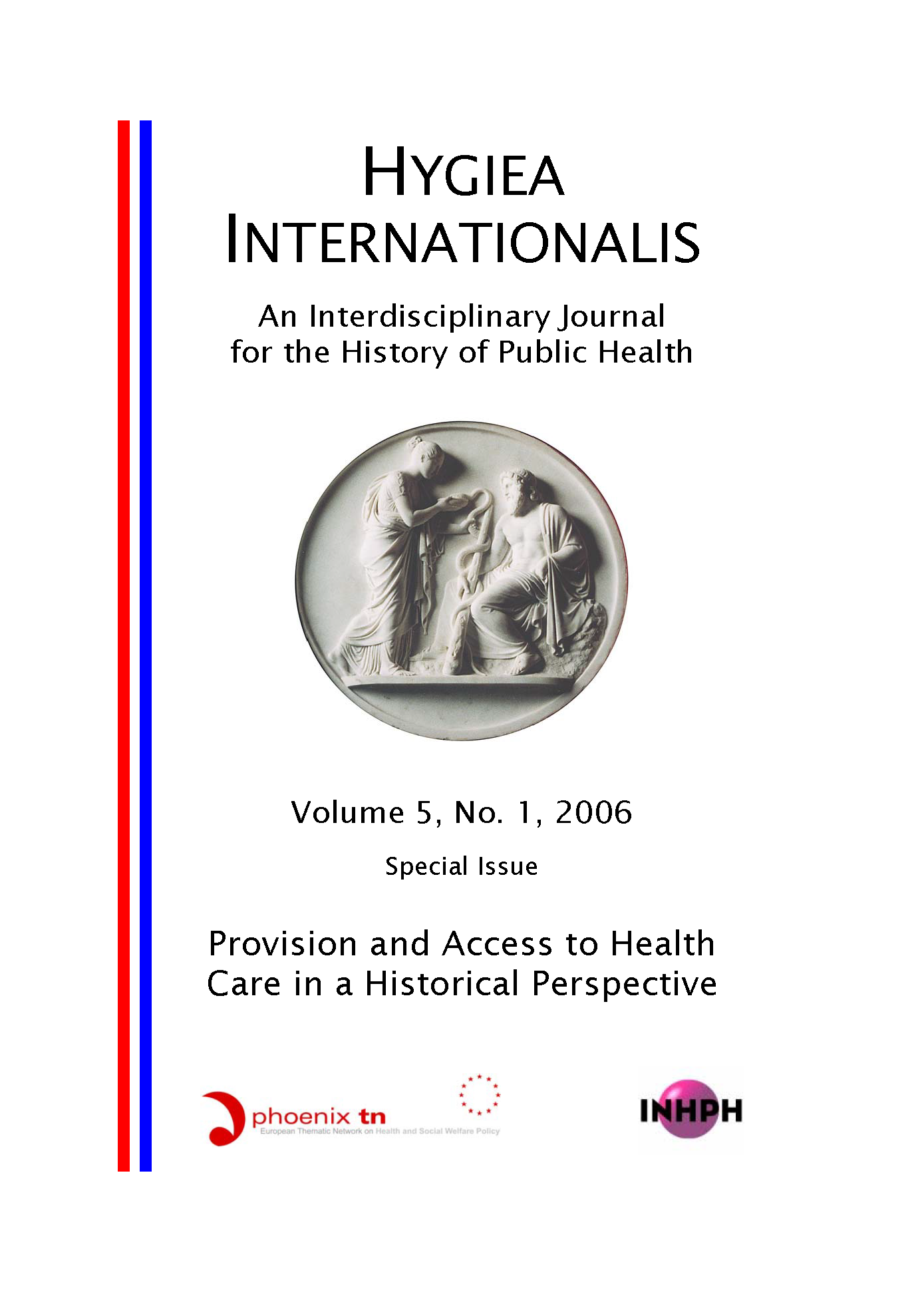The Invention of a Medical Institution?
A Discussion of Hospitals Around 1800
DOI:
https://doi.org/10.3384/hygiea.1403-8668.065191Keywords:
Birth of the Clinic, hospital, hospital foundation, domiciliary care, institution/organisation, poor relief, medical police, GermanyAbstract
The article considers the position of the hospital in the discussion on health care between self-help and formal poor relief. This is done for the late 18th and early 19th centuries when besides the famous hospital foundations e.g. in Vienna and Würzburg, a lot of hospital foundations failed. Although hospitals had been considered to be quite useful for the state by influential publicists, in the German territories neither public opinion nor doctors favoured central hospital care for the poor around 1800. A policinical model with an essential portion of curing the sick in their homes had been the modernist model of medical help in terms of late 18th / early 19th century discourse. The process of inventing the hospital as a new medical institution was based on the acceptance of family and kinship networks as requisite parts of medical help.Downloads
Published
2006-11-17
How to Cite
Dross, F. (2006). The Invention of a Medical Institution? A Discussion of Hospitals Around 1800. Hygiea Internationalis: An Interdisciplinary Journal for the History of Public Health, 5(1), 91–106. https://doi.org/10.3384/hygiea.1403-8668.065191
Issue
Section
Articles
License
Copyright (c) 2006 the Author(s)

This work is licensed under a Creative Commons Attribution-NonCommercial 4.0 International License.






